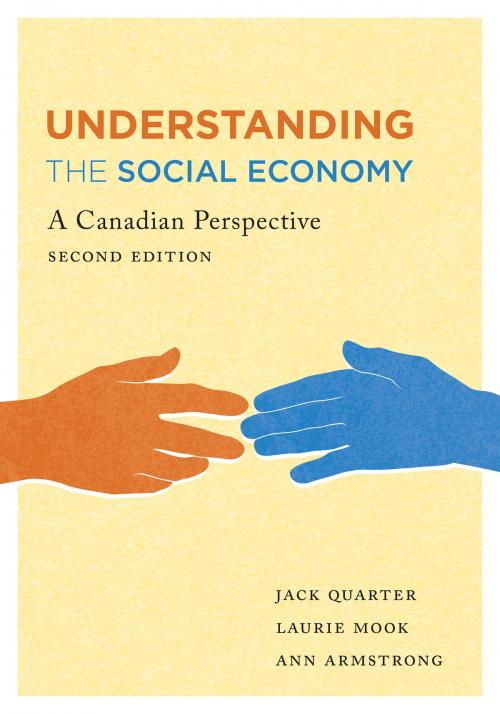Understanding the Social Economy
A Canadian Perspective, Second Edition
Nonfiction, Social & Cultural Studies, Political Science, Government, Public Affairs & Administration, Business & Finance, Industries & Professions, Nonprofit Organizations & Charities, Social Science, Sociology| Author: | Jack Quarter, Laurie Mook, Ann Armstrong | ISBN: | 9781487511050 |
| Publisher: | University of Toronto Press, Scholarly Publishing Division | Publication: | November 29, 2017 |
| Imprint: | Language: | English |
| Author: | Jack Quarter, Laurie Mook, Ann Armstrong |
| ISBN: | 9781487511050 |
| Publisher: | University of Toronto Press, Scholarly Publishing Division |
| Publication: | November 29, 2017 |
| Imprint: | |
| Language: | English |
Suitable for courses addressing community economic development, non-profit organizations, co-operatives and the social economy more broadly, the second edition of Understanding the Social Economy expands on the authors’ ground-breaking examination of organizations founded on a social mission – social enterprises, non-profits, co-operatives, credit unions, and community development organizations.
While the role of the private and public sectors are very much in the public light, the social economy is often taken for granted. However, try to imagine a society without the many forms of organizations that form the social economy: social service organizations, arts and recreation organizations, ethno-cultural associations, social clubs, self-help groups, universities and colleges, hospitals and other healthcare providers, foundations, housing co-operatives, or credit unions. Not only do these organizations provide valuable services, but they employ many people, and purchase goods and services. They are both social and economic entities. Understanding the Social Economy illustrates how organizations in the social economy interact with the other sectors of the economy and highlights the important social infrastructure that these organizations create.
The second edition contains six new case studies as well three new chapters addressing leadership and strategic management, and human resources management. A much-needed work on an important but neglected facet of organizational studies, Understanding the Social Economy continues to be an invaluable resource for the classroom and for participants working in the social sector.
Suitable for courses addressing community economic development, non-profit organizations, co-operatives and the social economy more broadly, the second edition of Understanding the Social Economy expands on the authors’ ground-breaking examination of organizations founded on a social mission – social enterprises, non-profits, co-operatives, credit unions, and community development organizations.
While the role of the private and public sectors are very much in the public light, the social economy is often taken for granted. However, try to imagine a society without the many forms of organizations that form the social economy: social service organizations, arts and recreation organizations, ethno-cultural associations, social clubs, self-help groups, universities and colleges, hospitals and other healthcare providers, foundations, housing co-operatives, or credit unions. Not only do these organizations provide valuable services, but they employ many people, and purchase goods and services. They are both social and economic entities. Understanding the Social Economy illustrates how organizations in the social economy interact with the other sectors of the economy and highlights the important social infrastructure that these organizations create.
The second edition contains six new case studies as well three new chapters addressing leadership and strategic management, and human resources management. A much-needed work on an important but neglected facet of organizational studies, Understanding the Social Economy continues to be an invaluable resource for the classroom and for participants working in the social sector.















